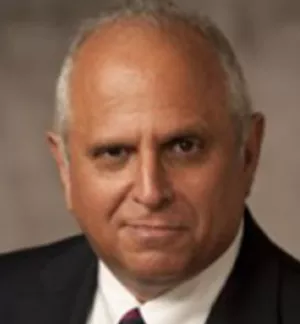Last month the Council on Foreign Relations published a report co-authored by Joel I. Klein and Condoleezza Rice, titled, “U.S. Education Reform and National Security.” Giving voice to the work of its task force of 25 scholars and practitioners, the report sounded a call to arms from its opening sentence.
“It will come as no surprise to most readers,” Klein and Rice wrote, “that America’s primary and secondary schools are widely seen as failing.” With that swift assertion the authors traveled quickly to their destination: we must test, have standards, and audit. The security of the nation is at risk and requires nothing less.
I blogged on this matter at Reuters.com. It seemed surprising that two years after Secretary of Defense Gates submitted the most recent Quadrennial Defense Review in which he made little mention of US education that the nation’s schools could have fallen so far so fast as to constitute a national security crisis. Moreover, I wondered, why was it that the authors believed we could extricate ourselves from such circumstances by ... tests, standards, and audits?
Several task force members wrote dissents to the Klein/Rice report, and joined in others’. The dissent offered, below, by Stephen M. Walt, a task force member and the Robert and Renee Belfer Professor of International Affairs at Harvard Kennedy School, was joined by Carole Artigiani, Linda Darling-Hammond, and Randi Weingarten:
“I am pleased to support the Task Force’s effort to draw attention to the issue of public education. The report contains valuable information and some useful suggestions for reform, but in my judgment falls short in several areas.
“First, the report exaggerates the national security rationale for reforming U.S. K-12 education. It says a troubled public education system is a ‘very grave national security threat facing this country,’ but it offers only anecdotal evidence to support this unconvincing claim. The United States spends more on national security than the next twenty nations combined, has an array of powerful allies around the world, and remains the world leader in science and technology. It also ranks in the top 10 percent of the world’s 193 countries in educational performance, and none of the states whose children outperform U.S. students is a potential rival. Barring major foreign policy blunders unrelated to K-12 education, no country is likely to match U.S. military power or overall technological supremacy for decades. There are good reasons to improve K-12 education, but an imminent threat to our national security is not high among them.
“Second, there is a mismatch between the report’s alarmist tone and its core recommendations. In particular, if the current state of K-12 education were really a very grave threat to national security, the Task Force should emphatically support allocating greater resources to meet the challenge. Yet even though key recommendations, such as raising teacher quality, cannot be realized without additional public investment, the report offers only a bland statement that ‘increased spending may well be justifiable.’ It then declares that ‘money alone is not the answer,’ creating the unfortunate impression that the Task Force is trying to solve an alleged national security threat on the cheap.
“Third, the call for a ‘national security readiness audit’ of educational performance repackages the current focus on standards under a misleading label. The proposed audit would not measure ‘national security readiness,’ and it is not clear who will pay for these new reporting requirements or what the consequences of poor performance would be.
“Fourth, there is no consensus among professional educators, academic scholars, or engaged citizens about the net impact of charter schools, vouchers, or other forms of privatization, because empirical evidence is mixed. The report leans heavily toward one side in this contested set of issues, however, thereby encouraging a policy course that could do more harm than good. Finally, the report correctly emphasizes that improved teacher quality may be the single most important factor that would improve student achievement. Yet it offers few concrete steps for addressing this issue. Creating a serious national program of training and credentialing would not be cheap, but it could do more to improve our schools than simply providing greater ‘choice’ or subsidizing various forms of privatization with public monies.
“Education is vital for America’s future, and the CFR Task Force deserves credit for tackling the issue head-on. But the report is best seen as one element of a larger conversation, and not as a reliable blueprint for reform.”
Tumin, Zachary. “Is There a National Security Crisis in U.S. Education?.” April 3, 2012




